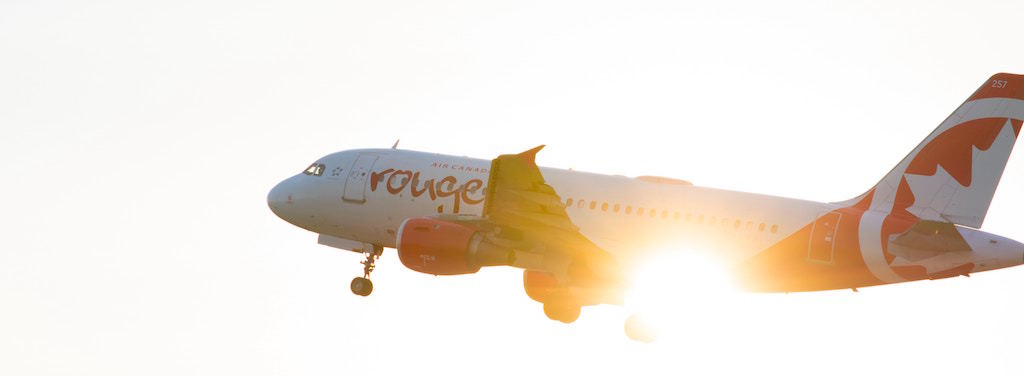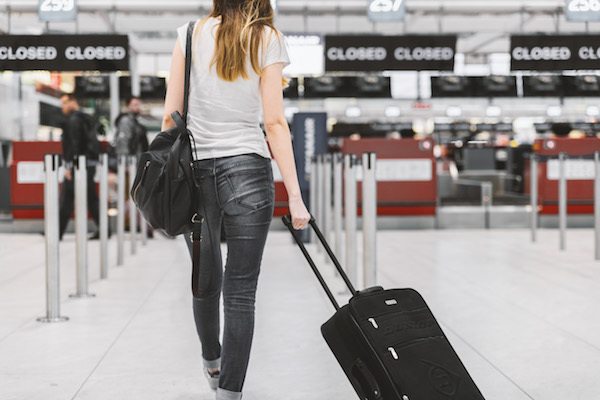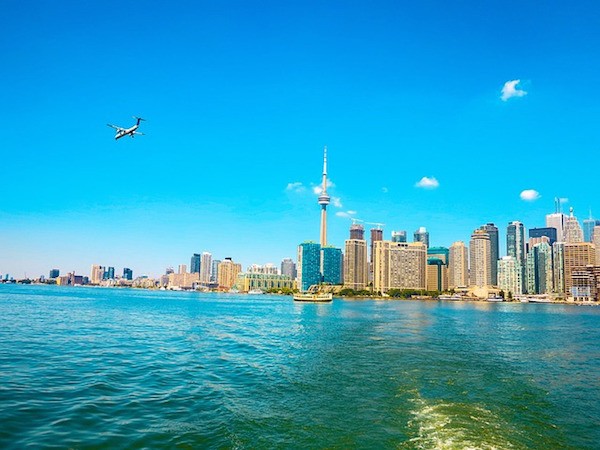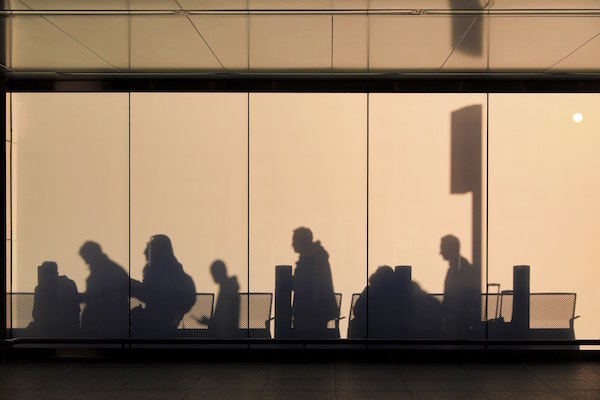
Want better air passenger rights? Canada wants to hear from you!
At a moment’s notice, political landscapes shift, and right now, the scene for Canada air passenger rights is at a crucial tipping point.
So, what does this mean? It’s simple — establishing official air passenger rights in Canada!
Canadian policy makers need your help to decide on some legislation that can change how people travel on any airplane to, from, and within Canada.
The Canadian government has invited the public to speak up and submit their thoughts about what passenger rights should look like by Tuesday, 28 August 2018.
>> Have your say in the CTA discussion.
As a global leader in the fight for air passenger rights, we welcome new airline regulations that offer legal certainty, improve conditions, and truly protect travelers. You can count on us to push the Canadian government to do the best for passengers.
>> Read AirHelp’s paper on Canada’s proposed passenger protection regulations
But we’ll also explain what’s going on and how you can get involved to make a difference on a global scale.
Before we go full steam ahead, let’s be blunt: this is an effort which needs a loud and unified voice. Together, we can gain increased protection for air travelers. Together, we can hold airlines accountable for how they treat and compensate people, especially in decisive moments when airlines fail to deliver on their promises.
Your Rights and the Rights of Others
People push for human rights, they protest for increased access to affordable education, and they fight for labor rights.
Yet, as we take a step back and evaluate our position as modern people perpetually in transit, shouldn’t we consider the rights we have when it comes to how we’re treated in the hands of the airlines?

A flight is a paid service, and naturally, as a passenger, you pay for your ticket. In exchange for that payment, a respective airline agrees to fly you from point A to point B in a mutually agreed upon timeframe. You buy airline tickets for work, so you can make that meeting or attend a much anticipated conference. You pay for flights to spend time with friends and family.
However, just because you elect to board a plane doesn’t mean that you sign away your dignity and legal rights if the service that you paid for doesn’t deliver what it promised.
Europe Already Has Passenger Rights: Let’s Get Canada on Board!

In 2004, Europe set a groundbreaking standard and established an impressive regulation, EC 261. This rules that passengers who experience lengthy delays, cancellations, and other disruptive air travel scenarios such as denied boarding are entitled to hundreds in cash for their inconvenience.
This straightforward and thorough regulation puts people first and protects travelers while in transit. The law sets rules for compensation when people face flight disruptions caused by the airlines. For example, a European flight delay of three or more hours could qualify for up to €600 in compensation.
Among other things, there are regulations in place which require airlines to keep passengers informed, provide them with food and water, and re-routing options.
We’d love to see similar measures enshrined in Canadian law.

When it comes to air passenger rights, there’s global change on the horizon, but it won’t happen without your voice and participation.
Here’s what you need to know and what you can do.
What about Passenger Rights in Canada? The Current State of Affairs.
Let’s consider some context. Here are a few points worth noting about a discussion that’s been going on for a while in Canada.
The Timeline: Old-School Regulations and How They Used to Work
In 1996, the Canada Transportation Act refined previous regulations addressing Canadian transportation matters. Despite the fine-tuning involved, the Canada Transportation Act gave the CTA (Canadian Transportation Agency) limited capabilities.
Rather than having uniform guidelines for airlines in terms of how they treated, informed, and compensated passengers, the CTA simply made sure that individual airlines drafted their own terms and conditions of conduct, referred to as “conditions of carriage.” Airlines created their own documents and listed their conditions of carriage in an official document called a “tariff.”
The CTA had a responsibility to review the airlines’ terms, make sure that key points were reasonable, and ensure that airlines abided by what they committed to paper. But, the conditions varied across the country and there wasn’t a set standard on how to handle air travel issues when routine misfortunes like delays, cancellations, or lost luggage took center stage.
Let’s be frank: flight delays and cancellations are distressing. People are often left to fend for themselves while stranded and inconvenienced, racking up huge bills as they wait and try to solve travel issues alone. Acceptable? Certainly not. That’s why air passenger rights need your attention as well as the consideration of governing bodies that can institute change.
Why Do Air Passenger Rights Need You? Why Should There Even Be Standards for Air Passenger Rights?

You, your friends, and your family members should not have to be on the other end of “there’s nothing we can do” or “that’s really not my problem.” When you’re in an airport, delayed for hours on end, obligations, work, and life events move forward without you.
The way you make a living is put on the line, the life event you’re hoping to be a part of vanishes from your grasp, and you have little recourse. You might even wait so long for the airlines to “give” you alternatives that you have to sleep in the airport.
No one should have to spend the night in an airport. Furthermore, no one should have to silently tolerate flight disruptions and grovel at the feet of the airlines whose operations caused the issue in the first place.
A lack of preparedness on an airline’s part should not constitute an emergency on yours.
Airlines should be held to standards that reflect solid business practices to fairly and humanely serve their paying customers.
Fast Forward to Today: What’s Going on Now?
On 23 May 2018, eyes turned to the Canadians after its parliament passed theTransportation Modernization Act. This measure requires the CTA (Canadian Transportation Agency) to draft a set of updated and reasonable regulations for airlines—specifically outlining airlines’ minimum obligations to air passengers, including sections that speak to compensation for passengers.
Considerations for unifying standards bridge the following categories:
- Airlines’ responsibility to communicate with passengers
- Flight delays and cancellations
- Denied boarding
- Lost or damaged baggage
- Transportation of musical instruments
- Tarmac delays
- Seating of children under the age of 14
The desire to set uniform passenger rights is likely to be great news for anyone who flies:
- within Canada
- to or from Canada
- on a Canadian aircraft
It Gets Even Better: Canada Wants to Hear From You
The Canadian government is asking people to weigh in on the discussion. They want you to help shape what these new standards will look like.

People are encouraged to contribute their thoughts in person or in writing. Prominent topics include flight delays, cancellations, and damaged luggage, but it doesn’t stop there. There’s also an option to comment on issues like air service price advertising, transportation of unaccompanied minors, and complaints and enforcement.
Rights for You and Other People Matter
Establishing rights for air passengers pushes humanity in a more progressive direction, towards mutual respect and away from people being ill-informed and powerless when things go wrong.
You deserve to have all the information you need. You should be treated fairly and you shouldn’t be mistreated by the airlines. You shouldn’t have to miss work. You shouldn’t have to miss that family wedding or forego your own honeymoon. And … it’s almost inconceivable that we have to point it out, but we will: you paid to arrive at a particular destination by a certain time, and the airlines agreed to that.
Let’s look at this with another lens.
If you pay for a product or service and don’t get what you’ve ordered, do you just shrug it off and say, “Well, that’s how it goes when you order [fill in the blank] from [X Company]?” No. Instead, you contact the company and make sure they deliver what you spent your money on.
What if you ordered books or wine glasses and got bananas? And what if your items showed up damaged? Are you fine with all of that? No, of course not. That’s ridiculous. Rather, you’d seek compensation and insist that you’re given what you paid for.
So, why is it different when dealing with the airlines?
Your rights matter and so do the rights of your friends and family. Help hold airline companies responsible for the products and services they advertise. It’s not okay for them to break agreements, burden you with the inconvenience, and leave you hanging out to dry.
There’s Still Time to Make a Global Difference Today
All too often, we look at the world’s problems and feel overwhelmed. Some are such big issues and there are so many of them. You might think, “What can I do about things like air passenger rights?”
First of all, don’t sell yourself short. There’s a lot you can do, especially when it comes to your rights as an air passenger, and it doesn’t even take a lot of time.
Five Immediate Options for Change
Here are some options on how you can make an impact today in terms of your rights and other people’s passenger rights.
Give one of these options a whirl and push air passenger rights forward.
-
- Speak up (digitally)
- You can leave a comment on CTA’s air passenger protection page about your thoughts involving one of these issues:
- flight delays
- cancellations
- flight compensation
- how airlines communicate rights to passengers
- You can leave a comment on CTA’s air passenger protection page about your thoughts involving one of these issues:
- Take 10 minutes to fill out a questionnaire about passenger protection
- Attend a meeting if you can
- Read the CTA’s discussion paper and tell them what you think. You can choose to respond to any of the questions listed in the document.
- Hold the airlines accountable
- If you’ve had a delayed, canceled, or overbooked flight going to or from Europe within the last three years, file a claim.
- Speak up (digitally)
Give Passenger Rights a Green Light!
The Canadian government has opened up a unique opportunity to let the public decide. Remember, you have until Tuesday, 28 August 2018 to submit your thoughts on the kind of rights you want.
The Canadian government wants to hear the voice of the people and so do we. Actively join the effort for air passenger rights and help support these initiatives worldwide.
Know that you can count on AirHelp to inform and empower people everywhere. We are stronger when we work together.
Top image © Nicholas Santoianni on Unsplash